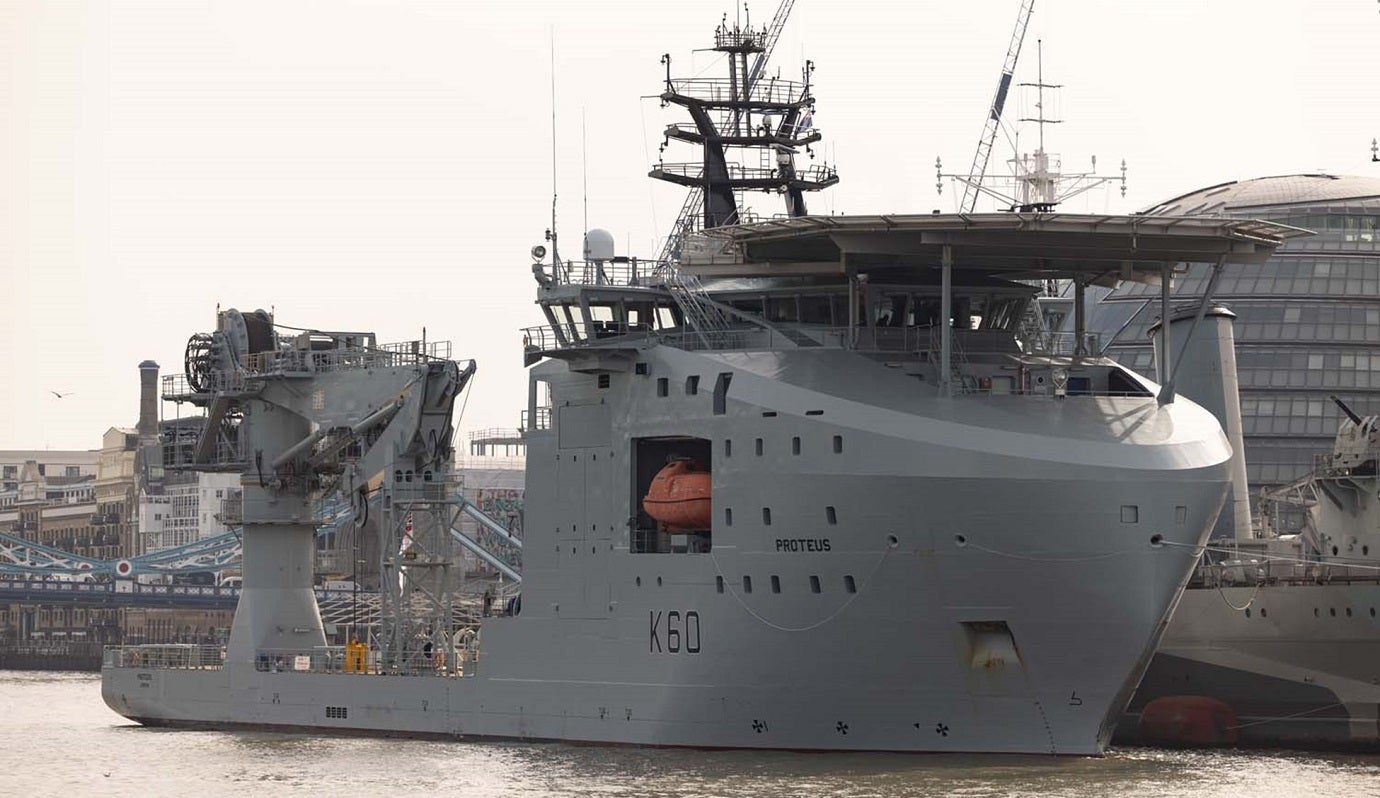
RFA Proteus (K60), the UK Royal Navy’s latest supporting asset, has entered service in the Royal Fleet Auxiliary (RFA) in a ceremony on the Thames River on 9 October.
As the Navy’s support arm, the RFA will use the new ship as a launchpad for remotely-operated vehicles and as a testbed for a suite of emerging capabilities.

Discover B2B Marketing That Performs
Combine business intelligence and editorial excellence to reach engaged professionals across 36 leading media platforms.
Formerly a commercial oil-rig support vessel, the UK Ministry of Defence (MoD) purchased the vessel in November 2022, when the UK Government opted to invest in the ship as the Navy’s first Multi-Role Ocean Surveillance (MROS) ship rather than funding its planned National Flagship programme – a project to develop a diplomatic vessel intended to boost trade and investment in the UK.
Since January 2023, the 6,000 tonne ship underwent conversion and alterations at Cammel Laird Shipyard, in Birkenhead.
Proteus is equipped with a flight deck and a 1,000 square metre cargo deck, plus a heavy-duty crane for lifting and lowering operations.
Gareth Morris, head of the MROS procurement programme, stated: “The delivery team overcame extremely tight timelines, working with partners in industry and Navy Command to deliver Proteus within 12 months.

US Tariffs are shifting - will you react or anticipate?
Don’t let policy changes catch you off guard. Stay proactive with real-time data and expert analysis.
By GlobalData“The versatility this vessel brings, not just to the RFA but also the Royal Navy, will ensure that she will be vital to supporting maritime security for many years.”
UK MROS programme designed to protect subsea infrastructure
In the MoD’s November press release, the Government explained its decision arguing that the MROS programme is “vital to our national security by protecting subsea cables and pipelines”.
In June this year, defence ministers from countries involved in the Joint Expeditionary Force (JEF) – a UK-led global task force, including nine northern European members – discussed their increased focus on protecting underwater and offshore infrastructure.
Former UK Defence Secretary Ben Wallace noted at the time that “we face common challenges including Russian vessels mapping critical undersea and offshore infrastructure, indicating preparations for possible disruption and, at worst, sabotage.”
This year alone, the UK Royal Air Force have been particularly responsive to Russian navy ships traversing near British sovereign waters in the North Sea and North Atlantic.





